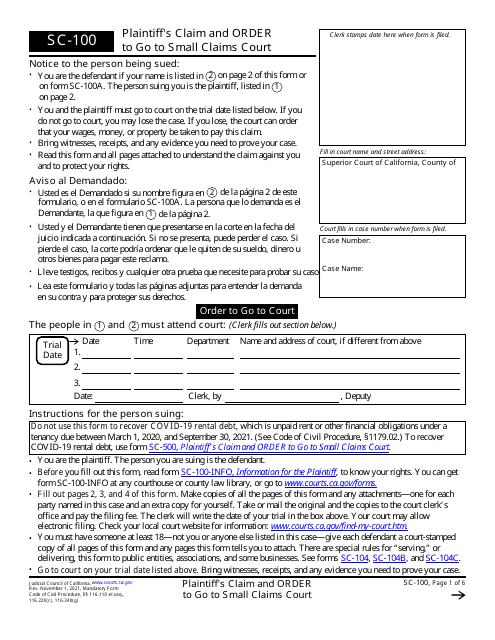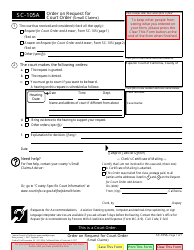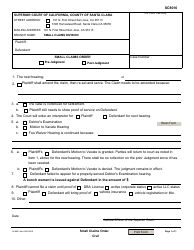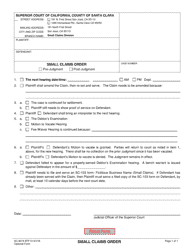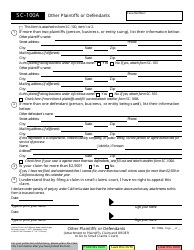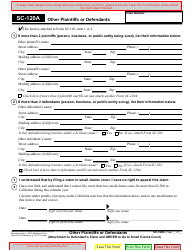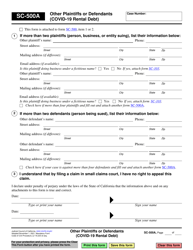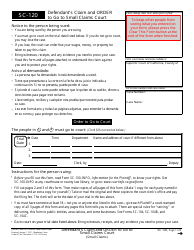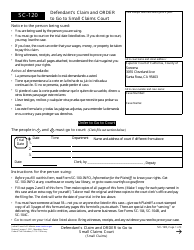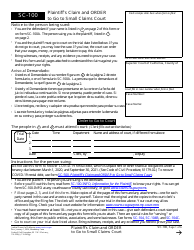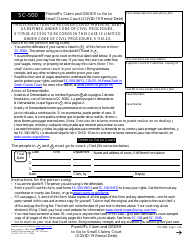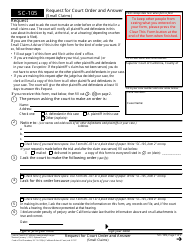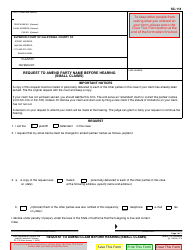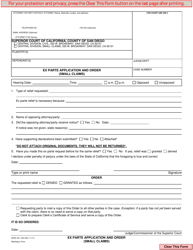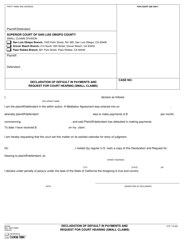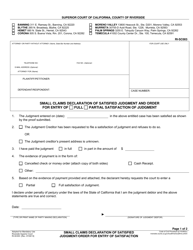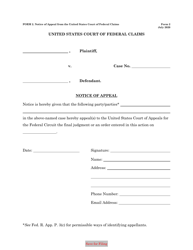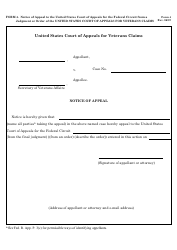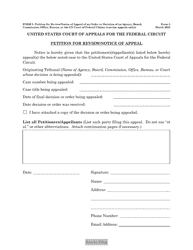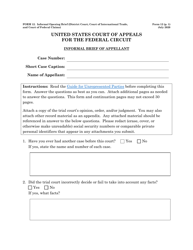Form SC-100 Plaintiff's Claim and Order to Go to Small Claims Court - California
What Is Form SC-100?
This is a legal form that was released by the California Superior Court - a government authority operating within California. As of today, no separate filing guidelines for the form are provided by the issuing department.
FAQ
Q: What is Form SC-100?
A: Form SC-100 is a Plaintiff's Claim and Order to Go to Small Claims Court in California.
Q: What is the purpose of Form SC-100?
A: The purpose of Form SC-100 is to initiate a small claims court case as the plaintiff in California.
Q: What information do I need to provide on Form SC-100?
A: You need to provide information about yourself, the defendant, the nature of the claim, and the amount you are seeking.
Q: Do I need to pay a fee to file Form SC-100?
A: Yes, there is a filing fee for Form SC-100. The amount varies depending on the amount of your claim.
Q: What should I do after completing Form SC-100?
A: After completing Form SC-100, you need to file it with the small claims court and serve a copy to the defendant.
Q: Can I use Form SC-100 for all types of cases?
A: Form SC-100 can be used for most types of civil cases where the amount claimed is $10,000 or less.
Q: Can I have an attorney represent me in small claims court?
A: In most cases, you cannot have an attorney represent you in small claims court. The process is designed for individuals to represent themselves.
Q: What is the time limit to file a small claims case in California?
A: Generally, you must file your small claims case within the statute of limitations for your specific claim.
Q: What happens after filing Form SC-100?
A: After filing Form SC-100, the court will schedule a hearing date and notify both parties.
Q: Can I appeal the court's decision in a small claims case?
A: Yes, you have the right to appeal the court's decision within 30 days of the judgment.
Q: What should I bring to the small claims court hearing?
A: You should bring any evidence or documents that support your claim, as well as any witnesses who can testify on your behalf.
Q: What happens if the defendant does not respond to Form SC-100?
A: If the defendant does not respond to Form SC-100, you may be able to request a default judgment against them.
Form Details:
- Released on November 1, 2021;
- The latest edition provided by the California Superior Court;
- Easy to use and ready to print;
- Available in Spanish;
- Quick to customize;
- Compatible with most PDF-viewing applications;
- Fill out the form in our online filing application.
Download a fillable version of Form SC-100 by clicking the link below or browse more documents and templates provided by the California Superior Court.
